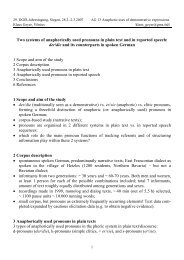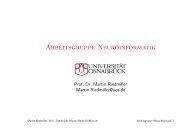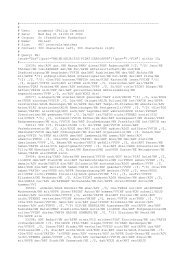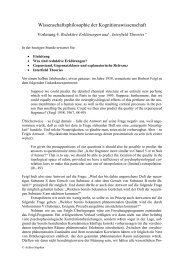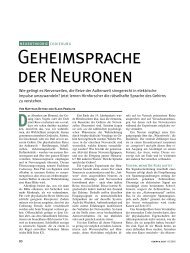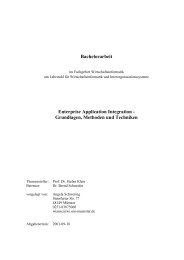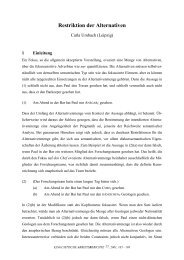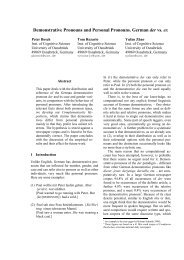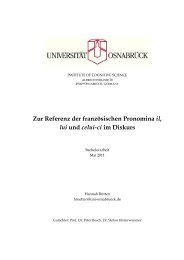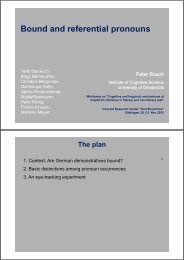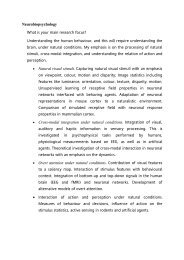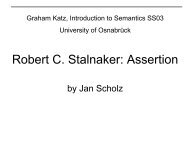Weak definites and German preposition - Cognitive Science
Weak definites and German preposition - Cognitive Science
Weak definites and German preposition - Cognitive Science
Create successful ePaper yourself
Turn your PDF publications into a flip-book with our unique Google optimized e-Paper software.
<strong>German</strong> Preposition-Article Contractions<br />
Hard to contrast<br />
If WDs are not referential, then there should not be any referents<br />
that could be contrasted to alternative referents.<br />
(41) Warst du schon zu dem Supermarkt? Der <strong>and</strong>ere hat zu.<br />
(42) Warst du schon zum Supermarkt? # Der <strong>and</strong>ere hat zu.<br />
(43) Warst du schon zu einem Supermarkt? # Der <strong>and</strong>ere hat zu.<br />
(44) Have you already been to the supermarket? The other<br />
one is shut.<br />
(45) Have you already been to a supermarket? # The other<br />
one is shut.<br />
The discourse in (41)/(44) is fine if a particular supermarket was<br />
previously introduced or can be accommodated,<br />
but the cPP in (42) does not seem to work well for the contrast,<br />
while the English definite behaves just like the definite in (41).<br />
<strong>German</strong> Preposition-Article Contractions<br />
Hard to contrast<br />
For the <strong>German</strong> cPPs we have been able to make additional<br />
observations regarding WD readings that could not easily have<br />
been made just using English <strong>definites</strong>:<br />
- WDs don't function anaphorically<br />
- WDs don't easily introduce referents<br />
- WDs inhibit modification<br />
- WDs inhibit contrasting their potential referents<br />
Still, the WD/RD ambiguity of the definite determiner also plays<br />
a role in <strong>German</strong>, as we shall see immediately.<br />
1<br />
7<br />
1<br />
8<br />
17<br />
18



